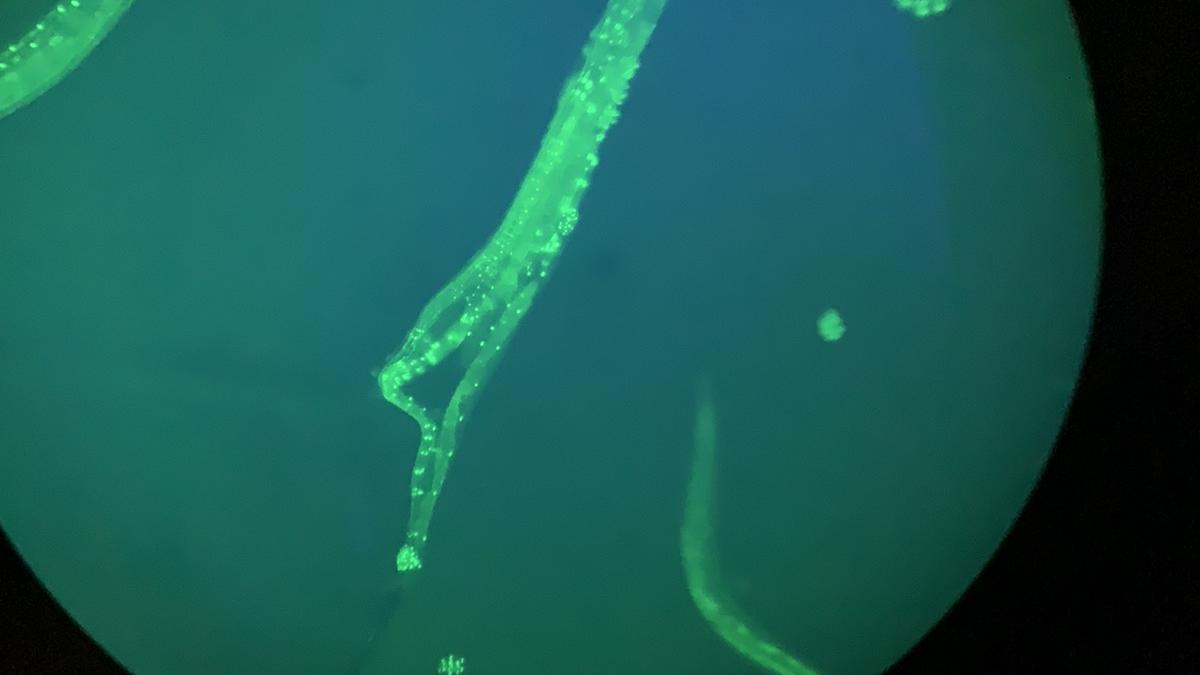
This worm develops food habits and its offspring ‘inherit’ them
The Hindu
C. elegans, the tiny roundworm, holds profound insights into biology and human behavior through trans-generational learning mechanisms.
Researchers fondly call the roundworm Caenorhabditis elegans “the worm” because of its widespread use in research to understand neuronal and molecular biology. It was the first multicellular organism to have its full genome sequenced and neural wiring mapped. C. elegans grows within 3-5 days from a fertilised egg to a millimetre-long adult, and it has informed profound insights into the human body, as well as biology more broadly.
On March 28, researchers from Princeton University in the U.S. reported that after C. elegans worms ate a disease-causing strain of bacteria, its children inherited the ‘knowledge’ to avoid making the same mistake — up to four generations. Their findings were published in the journal PLoS Genetics.
Given the mechanism by which this transmission occurs, the study raises questions about whether humans could have the same ability.
Pseudomonas vranovensis is a disease-causing bacterium found in C. elegans’s natural environment.
The researchers found that P. vranovensis makes a small RNA molecule called sRNA. When the worms ingest this strain, they also take in the sRNA. The sRNA then altered the worm’s feeding behaviour such that, from that point on, the worms ‘know’ to avoid feeding on this bacterium and save themselves from getting sick.
Remarkably, this learned avoidance behaviour was found to be transmitted to the trained worm’s progeny, grand-progeny, great-grand progeny, and great-great-grand progeny. The ability decayed only from the fifth generation.
The same team of researchers had previously discovered this trans-generational ability in C. elegans worms against P. aeruginosa bacteria (which also cause disease in humans). In the new study, they were able to confirm C. elegans worms in the wild had the same ability.





















 Run 3 Space | Play Space Running Game
Run 3 Space | Play Space Running Game Traffic Jam 3D | Online Racing Game
Traffic Jam 3D | Online Racing Game Duck Hunt | Play Old Classic Game
Duck Hunt | Play Old Classic Game




